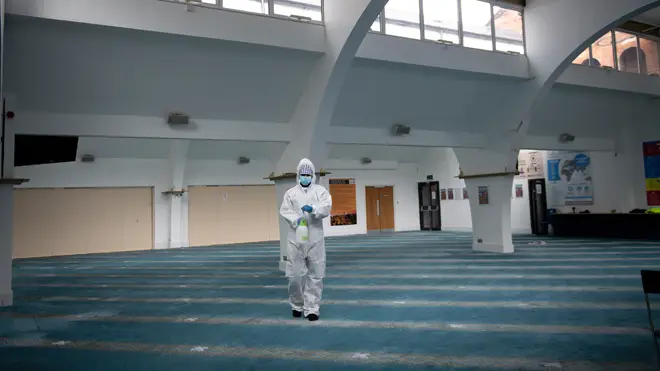
Iain Dale 10am - 1pm
12 May 2021, 14:20 | Updated: 12 May 2021, 14:30
Muslims across the world have been fasting for the past few weeks as they observe the holy month of Ramadan

Marking the end of the holy month of Ramadan, Eid-al-Fitr is a celebration in the Islamic faith meaning ‘Festival of Breaking the Fast’.
It officially takes place the day after the Shawwal moon is spotted, and declared by an official committee in Saudi Arabia. The announcement is then made by local mosques.
Owing to geographical locations and the lunar calendar, the date varies each year.
Here’s what you need to know about the annual event - and how it is celebrated around the world.
The committee announced on Tuesday that the moon had not yet been spotted, and, therefore, Ramadan would end on Thursday, May 13 this year.
Ramadan, the Arabic name for the ninth month in the Islamic calendar, is considered the holiest and is observed with fasting and prayer.
Fasting, or Sawm, is also one of the Five Pillars of Islamic faith, along with Shahada (Faith), Salah (Prayer), Zakat (Almsgiving) and Hajj (Pilgrimage). It is considered an act of worship that teaches patience, perseverance and charity.
In order to reflect on and celebrate their faith, Muslims are required to abstain from food and drink - including water - during daylight hours for a 30-day period.
Muslims around the world mark the occasion by coming together, feasting and giving thanks to Allah.
The celebrations typically commence with a large meal and are dominated by sweets and desserts - the event is often referred to as the Sugar Feast for this reason.
The types of foods consumed vary from country to country, with Muslims in Turkey gifting Baklava and Turkish delight to their neighbours and friends, while in Iraq and Saudi Arabia, rose-flavoured Kleichas filled with dates and nuts are passed around.
It is also customary to say “Eid Mubarak”, which means “blessed Eid”. Another greeting you may hear is “Eid sa’id”, which means “happy Eid”.
As was the case last year, Eid celebrations will be affected by the ongoing coronavirus and restrictions in place.
National lockdown restrictions across the UK mean that mass gatherings to celebrate the end of Ramadan cannot take place. However, six people or two households may meet up outside to mark the occasion.
The Muslim Council of Britain has also issued a guide on how to celebrate Eid during the times of Covid-19.